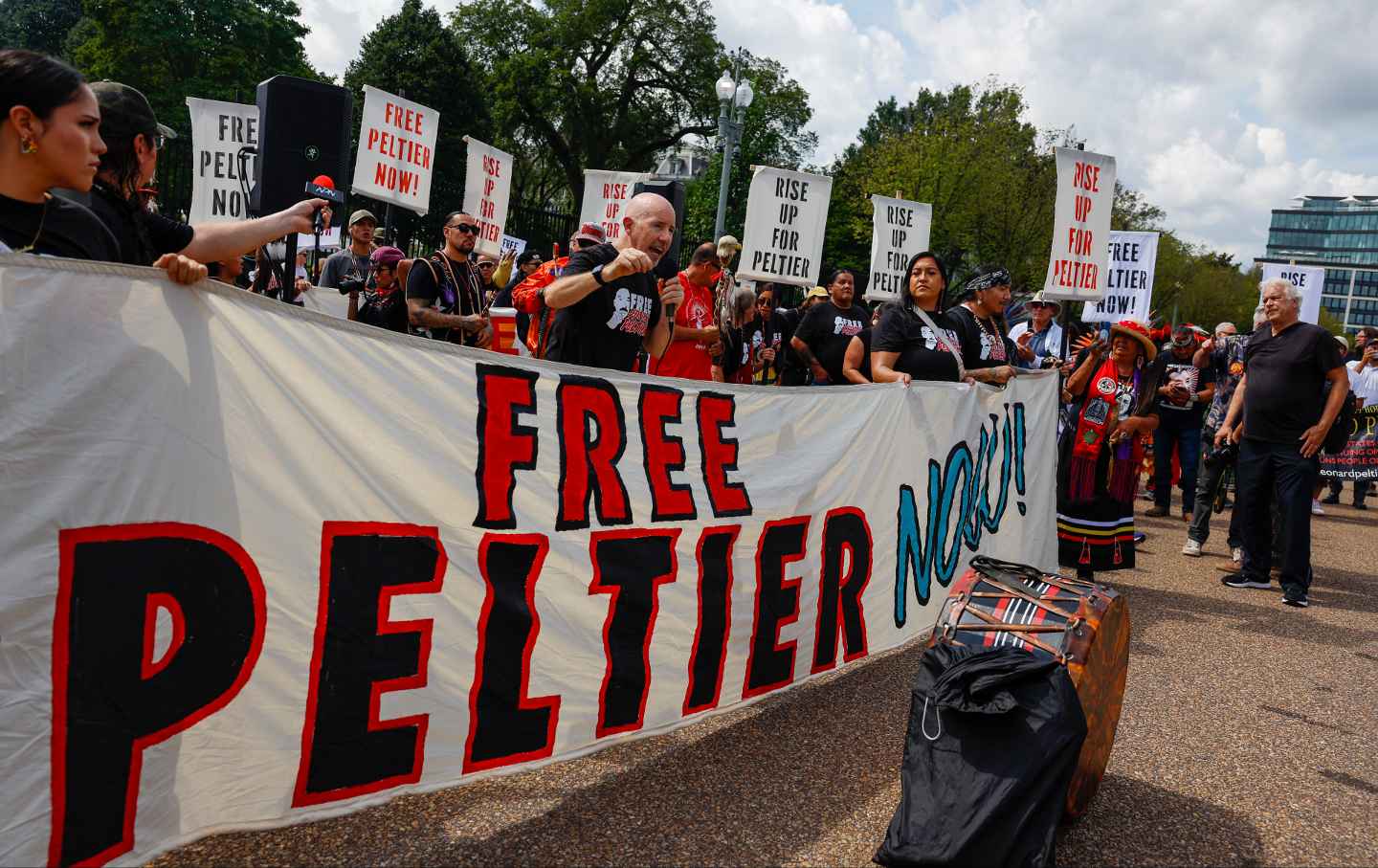
After being denied parole yet again, one of America’s longest-serving political prisoners is running out of options.
Activists participate in a protest outside the White House on September 12, 2023, to urge President Joe Biden to grant clemency to Native American activist Leonard Peltier.
(Anna Moneymaker / Getty Images)
Leonard Peltier, one of America’s longest-serving political prisoners, could have been a free man today. He could have gone home to the little plot of land waiting for him in North Dakota that Indigenous groups and elders had prepared for him. He could have hugged his son, Chauncey, who he hasn’t seen outside the walls of a prison since Chauncey was 10. He could have lived out his final days in peace, or at least the approximation of it, after a lifetime of violence at the hands of the United States government, starting with his boyhood at the notoriously abusive, state-sponsored Indian Boarding Schools.
Instead, the US Parole Commission decided on July 2 that the ailing soon-to-be-octogenarian would spend the next 15 years—if he lives that long—in a federal penitentiary.
“They didn’t sentence him to death,” Nick Tilsen, an Indigenous activist who aided in the Peltier release efforts with the South Dakota-based NDN Collective, told The Nation, “but that’s what’s happening to him slowly, every day.”
The announcement came three weeks to the day after Peltier’s June 10 parole hearing, his first in well over a decade. It was a lot like his other legal proceedings, which is to say, highly unusual.
Many of the people who had led the charge to put Peltier behind bars in the first place, such as District Attorney James Reynolds and a top federal officer, were among those advocating for his release. But neither of those men—nor most of the character witnesses requested by Peltier’s legal team—were permitted by the government to take the stand. Only Tilsen, who had been coordinating Peltier’s release plan, and Peltier’s doctor had made the cut.
Current Issue

Most of the eight character witnesses Peltier’s legal team brought to speak on his behalf were deemed “inadmissible.” The Parole Commission didn’t give reasons as to why, but such quirks—to put it lightly—in the judicial process are not new for Leonard Peltier, a man who has spent nearly 50 years incarcerated for a crime he likely did not commit, thanks to a trial rife with prosecutorial misconduct and state-sanctioned violence.
To use that district attorney’s words: “[T]he continued incarceration of Mr. Peltier was and is injust. We [the FBI] were not able to prove that Mr. Peltier personally committed any offense.” To use Amnesty International’s words, Peltier is a “political prisoner”—jailed simply for being part of the American Indian Movement, or AIM.
Thirty sitting members of Congress (and countless former ones) have also called for Peltier’s release, as have the United Nations, Nelson Mandela, Pope Francis, the Dalai Lama, Mother Teresa, Human Rights Watch, and the Democratic National Committee.
But Peltier’s defense committee told The Nation that the roster was stacked against him at his hearing. In contrast to Peltier’s two allotted witnesses, nearly a dozen people were brought in to speak out against him. The current FBI director, Christopher Wray, wrote to the commission calling Peltier a “remorseless killer.” Testimony also included the families of the two FBI agents at the heart of the Peltier case: Jack R. Coler and Ronald A. Williams. The pair were killed in a shootout at the Raging Bull encampment, located inside the Pine Ridge Reservation, on June 26, 1975.
Hundreds of thousands of pages of evidence have since been uncovered to suggest that Peltier’s conviction was the end product of unconstitutional tactics and surreptitious violence perpetrated by the feds. The Raging Bull shootout occurred in an era dubbed the “Reign of Terror” by Indigenous traditionalists who were routinely brutalized by the FBI, the Bureau of Indian Affairs, and the paramilitary faction of the US-installed tribal government, known as the Guardians of the Oglala Nation, or the Goon Squad. There were reportedly upwards of 60 unsolved murders across the reservation in one three-year period at this time. The FBI was known to turn a blind eye to, if not actively arm, the GOONs.
Peltier’s AIM codefendants were acquitted on homicide charges by an Iowa jury on the grounds that it was rational and necessary self-defense in the face of the government’s ongoing terror campaign. But Peltier, who had fled to Canada, had to be extradited, so his trial came later. This time, the FBI took the case to a federal judge who was“notoriously anti-Indian” and who barred all evidence pertaining to anti-Indigenous violence from the GOONs and the federal government. Key witnesses were blocked from the stand, or threatened and coerced into false testimony.
Popular
“swipe left below to view more authors”Swipe →
The jury found Peltier guilty of two counts of first-degree murder; he was given two consecutive life sentences.
Today, Peltier cannot even walk unassisted, let alone be a “danger to his community,” which is one of the considerations the Parole Commission must take into account. His lawyers told The Nation that for an incarcerated person, it can be near-impossible to access quality healthcare.
“The only consistent feature of his medical records is the near-universal lack of follow-up,” Moira Meltzer-Cohen, of the Leonard Peltier Defense Committee, said. “Even when it’s the prison’s own doctors recommending care, it just doesn’t happen.”
Moreover, in a maximum security prison, inmates are often thrust suddenly into lockdown—making reliable, routine care seemingly impossible, Meltzer-Cohen said.
But Jenipher Jones, a cocounsel on the case, said Peltier’s plight goes beyond the typical pitfalls of prison healthcare. “To withhold care from that political prisoner often means that attention is being diverted from advocacy, from pursuit of release,” Jones told The Nation. “It is forcing them to fight for their lives instead.”
Meanwhile, the FBI has leveraged its political power to keep Peltier locked up. Under the Clinton administration, The White House allegedly all but promised to free Peltier. His defense committee bought him clothes and his grandson prepared a bedroom for his homecoming.
Then, thousands of current and former FBI agents swarmed to Washington to protest Peltier’s clemency. Suddenly, and without warning, Clinton released his list of clemency grantees on January 20, 2001—without Peltier’s name on it.
Chauncey Peltier, Leonard Peltier’s oldest son, was with his father on the reservation on the day of the shootout. He recalls the long, winding road trips in his father’s orange Chevy van, fishing out on the lake, traveling with AIM demonstrators. He also remembers being 10 years old, entering the courthouse for his father’s trial—and being slammed against the wall by FBI agents who told him his “murdering dad would never walk free.”
It was just one more chapter in what the junior Peltier described as a lifetime of FBI harassment and violence on account of his last name, and a lifetime of loss.
“So many people tell me I sound just like him,” Chauncey Peltier told The Nation. “I feel like I’ve been robbed in this situation too, because my father’s been wrongfully incarcerated and he ain’t been there for us kids when we needed him.”
But Peltier’s reach has also spanned far beyond the prison walls—not just his story, but his words, his poetry, his art and his activism. From his cell in a supermax prison, Peltier has helped organize Indigenous-led mutual aid initiatives such as toy drives, collaborated with scholars to craft Indigenous-focused policy, and funded humanitarian initiatives by selling his artwork.
The elder Peltier was not available for interview at this time, impeded by both his declining health and the communications roadblocks of incarceration—phone calls and visits are severely limited. But in his 1999 memoir, he stood up for continued Indigenous resistance, and emphasized the importance of preserving the culture and heritage of his people.
“I am guilty only of being an Indian,” he wrote. “Being who I am, being who you are—that’s Aboriginal Sin.”
Peltier’s lawyers told The Nation they will be filing an appeal. There have also been continued demands for President Joe Biden to grant Peltier clemency—demands that will likely increase now that Biden is set to leave office in January.
Thank you for reading The Nation
We hope you enjoyed the story you just read, just one of the many incisive, deeply-reported articles we publish daily. Now more than ever, we need fearless journalism that shifts the needle on important issues, uncovers malfeasance and corruption, and uplifts voices and perspectives that often go unheard in mainstream media.
Throughout this critical election year and a time of media austerity and renewed campus activism and rising labor organizing, independent journalism that gets to the heart of the matter is more critical than ever before. Donate right now and help us hold the powerful accountable, shine a light on issues that would otherwise be swept under the rug, and build a more just and equitable future.
For nearly 160 years, The Nation has stood for truth, justice, and moral clarity. As a reader-supported publication, we are not beholden to the whims of advertisers or a corporate owner. But it does take financial resources to report on stories that may take weeks or months to properly investigate, thoroughly edit and fact-check articles, and get our stories into the hands of readers.
Donate today and stand with us for a better future. Thank you for being a supporter of independent journalism.
More from The Nation
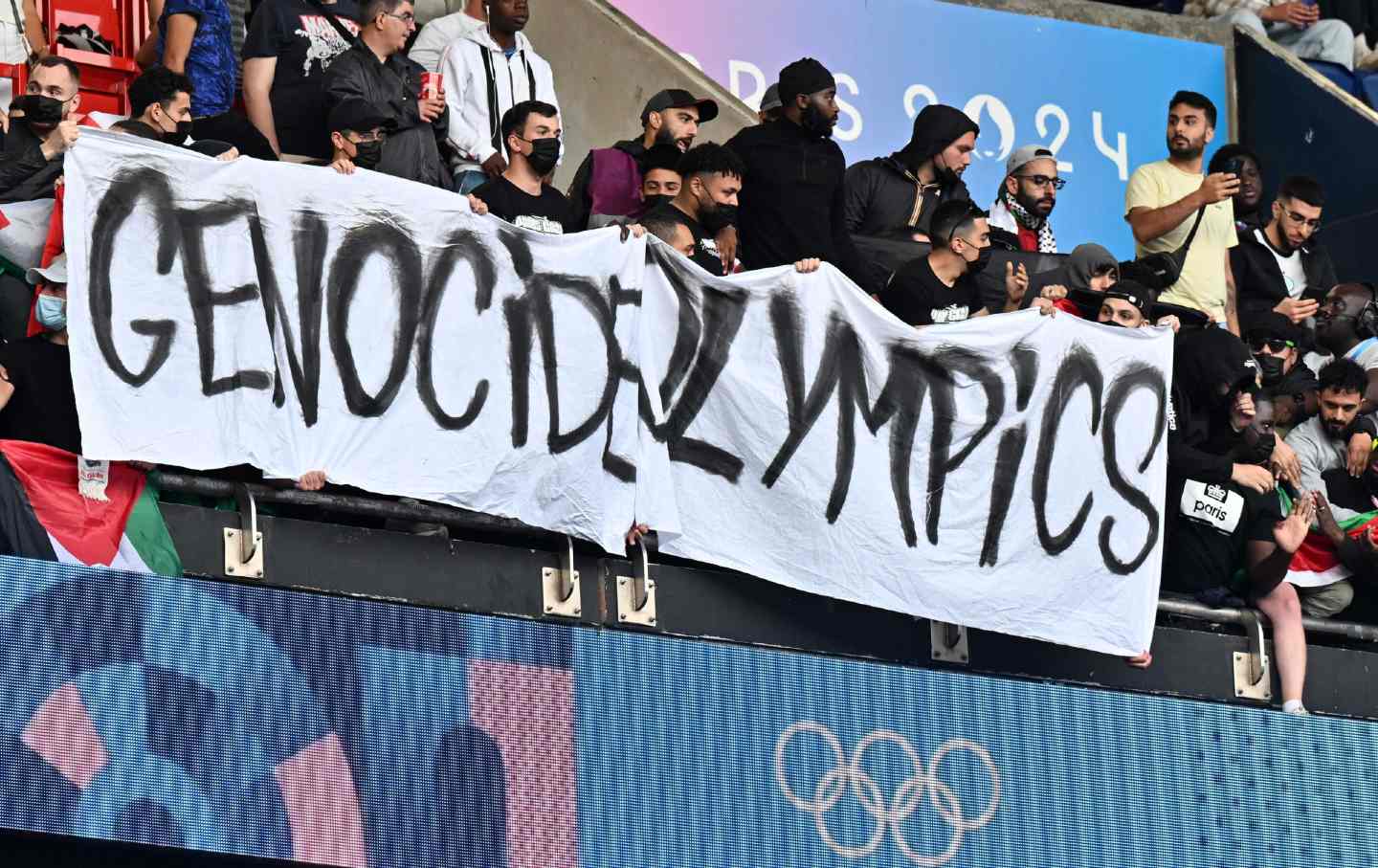
Paraguay’s men’s soccer team defeated Israel—but Israel wins just by being allowed to compete.
Dave Zirin and Jules Boykoff
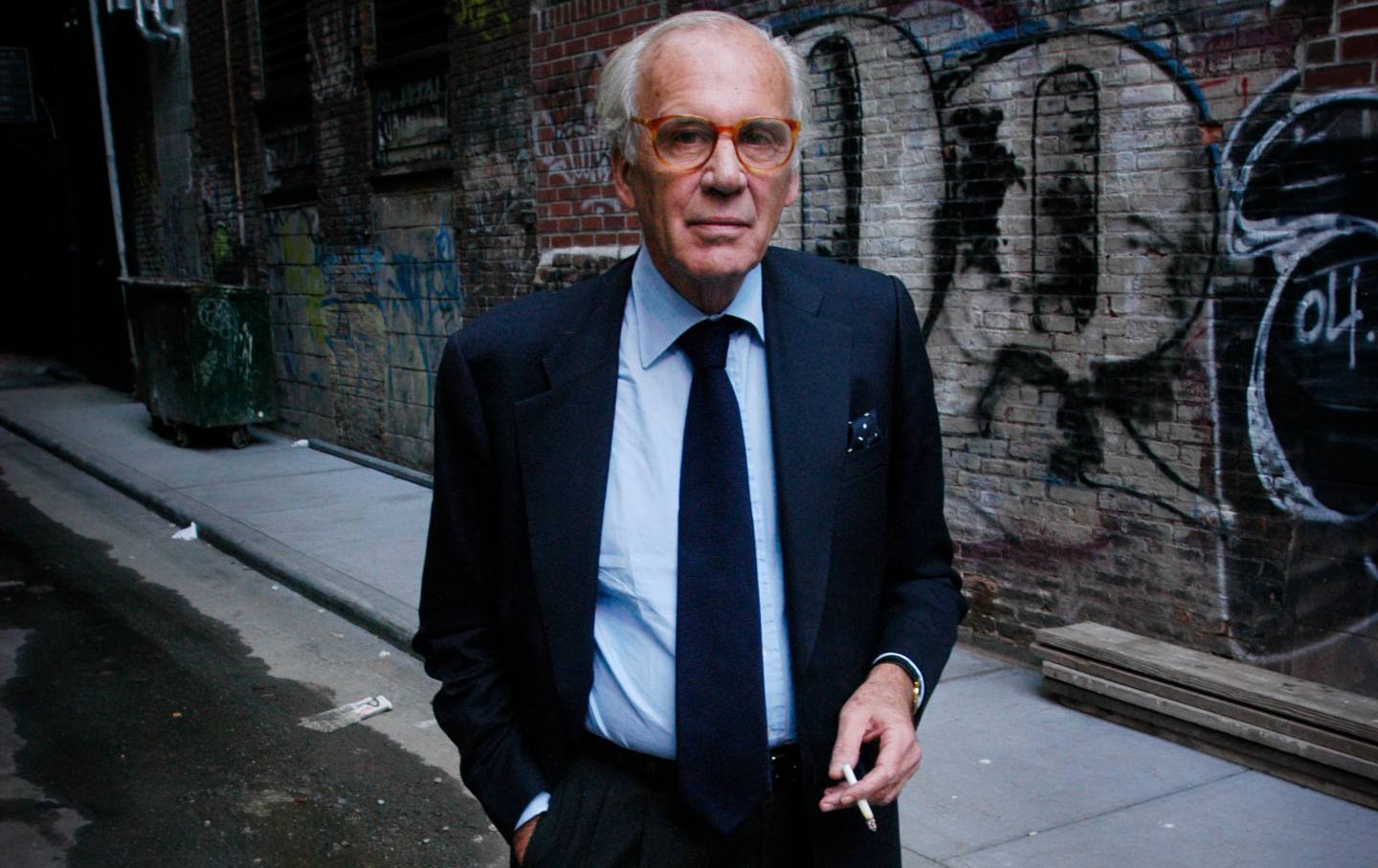
Writer Lewis H. Lapham, longtime editor of Harper’s Magazine and the founder of Lapham’s Quarterly, died in Rome. He was 89.
Obituary
/
Kelly Burdick
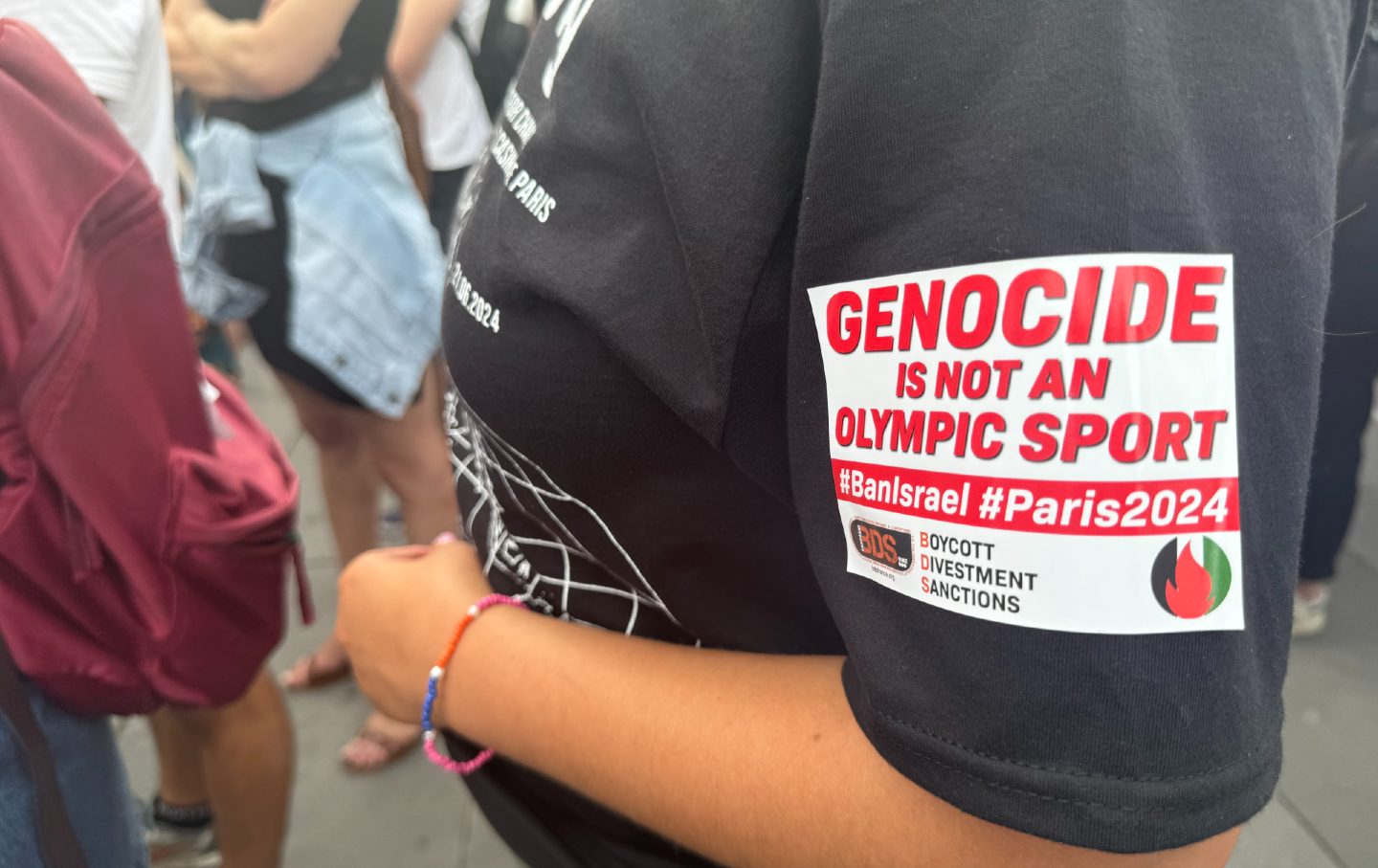
“The Olympic Games are profoundly disrupting the lives of French people,” the protesters wrote in a joint statement.“The question then arises: Who benefits from the Games?”
Dave Zirin and Jules Boykoff
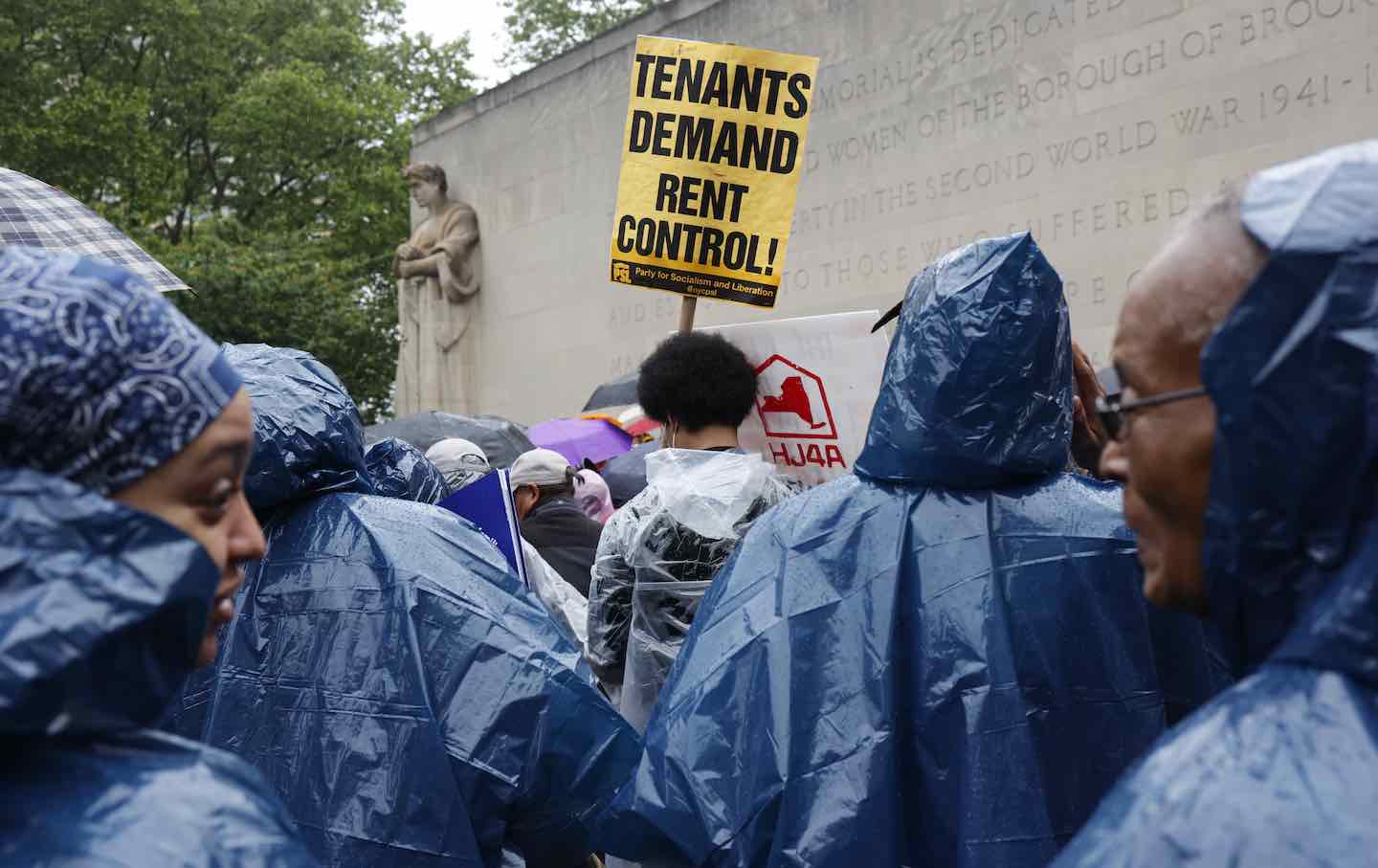
The president called on Congress to act, but he could enact a rent stabilization policy with a stroke of his pen. Tenant leaders say they will keep organizing until it happens.
Thomas Birmingham
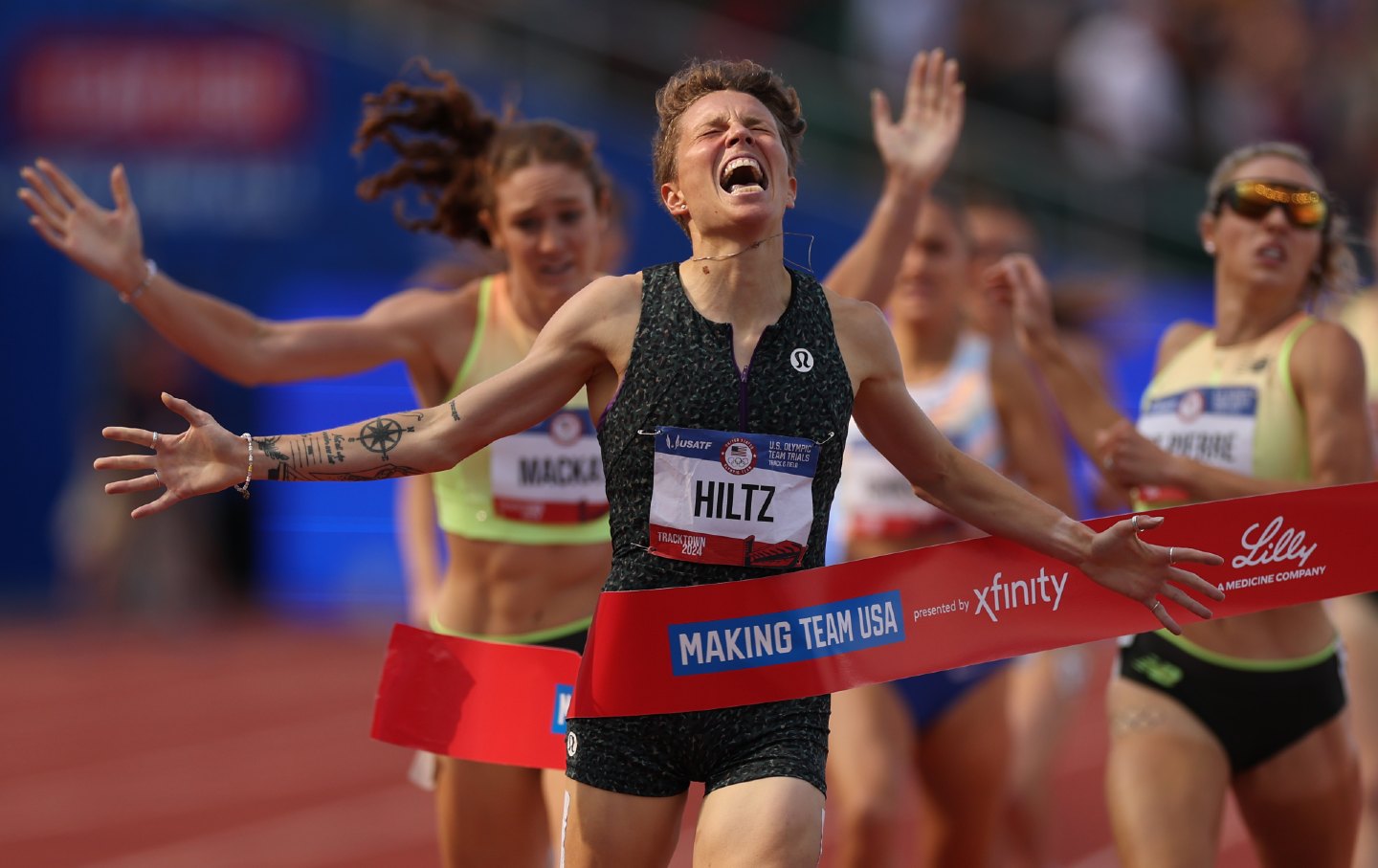
There are at least two trans nonbinary athletes—Quinn and Nikki Hiltz—and they’re impossible not to cheer for.
Dave Zirin and Jules Boykoff